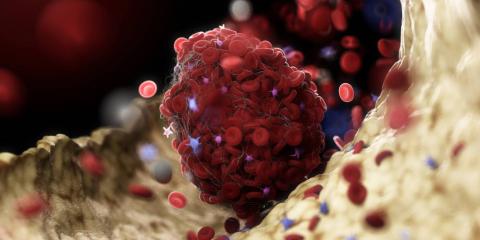What is persistent covid?
The after-effects of SARS-CoV-2 infection, which can last for months, are grouped together under the term "long covid". Other names include post-covid-19 syndrome, chronic covid-19, post-covid-19 condition, post-acute sequelae of SARS-CoV-2, among others.
However, one of the difficulties in studying something as broad and complex as a post-infectious syndrome is the challenge of reaching a common definition to study it. The WHO established one by the end of 2021, Spain published its own in 2022 and the US National Institutes of Health did so in 2023.
What are the symptoms?
The reason why it is so difficult to achieve a precise definition of persistent covid is the sheer number of symptoms that have been associated with coronavirus infection, often through observational studies, without a control group or with limitations or errors in their design.
This has resulted in more than 200 symptoms being associated with this problem, making it more difficult to diagnose and study persistent covid. Even so, some of the most commonly reported symptoms in the scientific literature include: loss of taste or smell, tiredness, cough and mental fog.
How many people are affected?
The large number of symptoms related to persistent covid, the different definitions and the publication of biased studies - e.g. through online surveys that favour selection bias - make it difficult to know the prevalence of this syndrome.
As a result, the answer to this question varies greatly depending on which study we look at, and it is easy to find percentages ranging from 10% to 80%.
Why does it happen?
The short answer is that it is not known, but several hypotheses, not necessarily mutually exclusive, have been put forward to explain persistent covid. Three of these are: a destabilisation of the immune system after infection, persistence of the virus in some tissues, and the formation of small clots.
Can it be cured?
The available scientific literature shows that most patients improve and even recover completely within one year. The response again depends on the definitions of persistent covid and recovery, but various studies estimate that the vast majority of patients recover within six months to one year.
Are there treatments or ways to prevent it?
At the moment, therapeutic options are limited. One of the few treatments that has shown some efficacy is metformin, which has been shown to reduce the incidence of persistent covid by 41%, with an absolute reduction of 4.1%, according to a paper published in The Lancet Infectious Diseases.
In addition, covid-19 vaccination has been shown to reduce the likelihood of sequelae. Sequelae are also less common after the first infection.
Does the risk increase with each infection?
Not everyone is at the same risk of persistent covid, so it does not necessarily increase with each infection. Despite the fact that the vast majority of the population has been infected, and that the number of infections and reinfections is higher now than at the beginning of the pandemic, cases of persistent covid have not only not increased proportionally to the number of infections, but some indicators show that they have decreased.
Why are there so many uncertainties at this stage?
Persistent covid is a reminder of one of the blind spots of modern medicine, which has difficulties in understanding and helping patients with chronic problems of unknown or poorly understood origin.
Moreover, the lack of biomarkers to facilitate patient diagnosis makes it very difficult for companies to take an interest in persistent covid, the prevalence of which is not even accurately known, because it is considered a risky investment.
"With so much heterogeneity among patients and few clear biomarkers, trying to treat persistent covid is, in fact, one of the riskiest bets," said an article published in Fierce Biotech.




